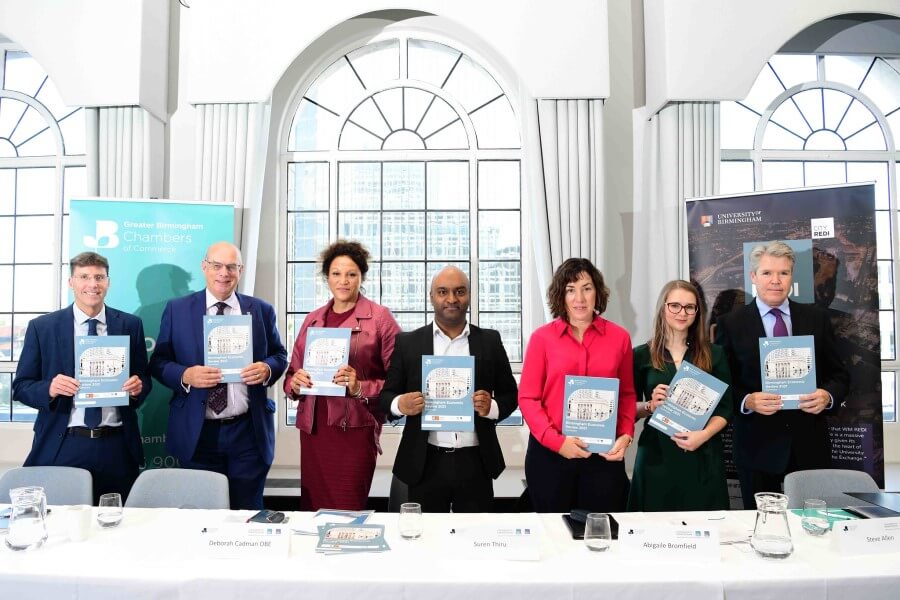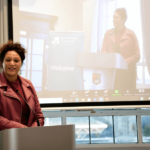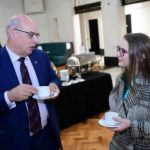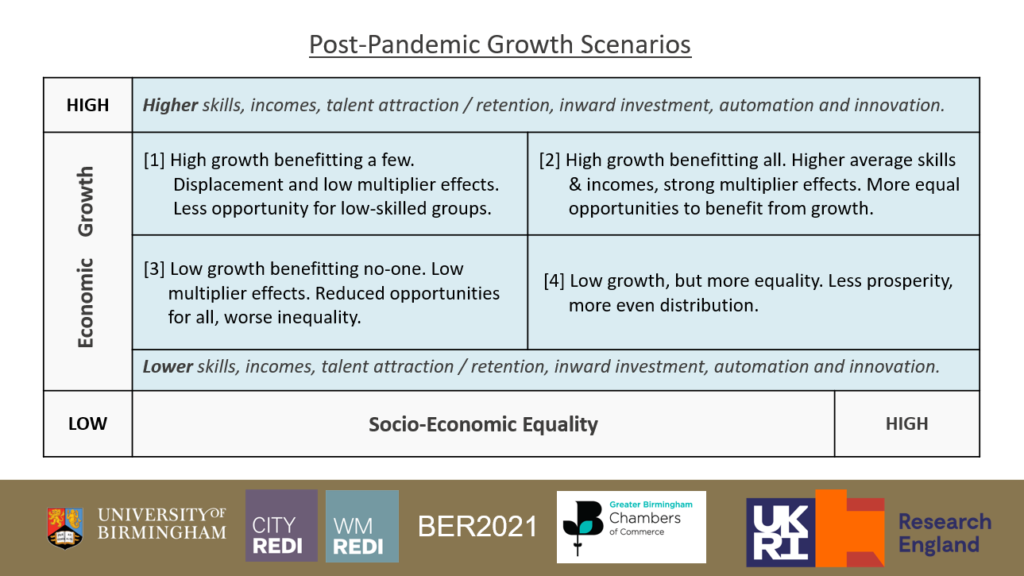On 21 October 2021, a launch event was held for the Birmingham Economic Review 2021.
All images from the event are courtesy of Jas Sansi.
The Birmingham Economic Review (BER) is produced by the City-REDI, University of Birmingham and the Greater Birmingham Chambers of Commerce. The BER is a deep-dive into the economy of England’s second-largest city and a robust high-quality resource for informing the development of research, policy and investment opportunities.
The launch was held at the University of Birmingham’s new Exchange building, opened with a welcoming from Professor Sir David Eastwood, Vice-Chancellor of the University of Birmingham.
Delegates then heard from City-REDI / WMREDI Director, Professor Simon Collinson who provided an overview of the BER, which looks at the impact of the pandemic and opportunities for sustainable and equal economic recovery. As he highlighted “We are not post-pandemic. There are still huge economic and health risks and massive challenges… but there is hope for a new future”.
Over the last 18 months, Birmingham has been one of the worst-hit cities by the pandemic, but businesses have remained resilient and adapted to challenges presented by the pandemic. Going forwarded businesses will have to consider the long-term structural changes that have occurred under the pandemic, as well as short- and medium-term challenges presented by Brexit.
However, Birmingham is facing some unique structural challenges going forward. One of the most significant will be skills shortages. As Professor Collinson noted, “We need new skills, different skills, better skills for the region”. In order to tackle this Education providers will need to work closely with businesses to better understand their needs for the labour market. Especially, as we are set to see significant changes to large sectors, such as a ‘40%’ decrease in the manufacturing sector in Birmingham by 2040, as predicted by the Oxford Economics Model.
However, there are a number of opportunities going forward. HS2 and the Commonwealth Games bring the potential for high inward investment and long-term economic gains. There are also so a number of sectors that have been rapidly growing in the region, even throughout the pandemic, with growing clusters of innovation in sectors such as; life sciences, low carbon transport and the Digital Economy.
Those most vulnerable were hit the worst by the pandemic with inequalities worsening across the UK, it is important that any post-pandemic growth scenarios going forward are equal. Key to this will be;
- Improving skills to meet the needs of businesses
- Increasing incomes to help retain skills and talent
- Continuing to support the strong inward investment that Birmingham has seen in recent years
- Innovation and automation will also be key to Birmingham’s rapidly growing sectors
Professor Collinson then passed over to Steve Allen, Chair of the event and President of the Greater Birmingham Chambers of Commerce, who introduced the other members of the Board;
- Deborah Cadman OBE – Chief Executive, Birmingham City Council
- Suren Thiru – Head of Economics, British Chambers of Commerce
- Abigaile Bromfield – Director of Economics and Planning, Arup
Deborah Cadman also noted that young people had been particularly impacted by the pandemic last year, with a survey conducted having found that 77% of 2,000 young people surveyed felt uncertainty about future job prospects. Deborah said that Birmingham City Council will be “working very closely with young people, education and employers to ensure that young people can access opportunities in Birmingham’. She also emphasised the “golden opportunity associated with HS2”.
Suren Thiru gave attendees the national picture. Demand in the UK bounced back really quickly but supply chains didn’t manage to keep up. At the same time, the amount of labour available has decreased, creating structural issues in the UK’s economy. Businesses have taken on a lot of debt and sectors most impacted by Covid have struggled to recover. We are also one of the earliest countries to remove support for business, which is concerning. But HS2 and Birmingham 2022 are reasons to be optimistic, especially if the government stands behind these projects.
Abigail Bromfield discussed how Covid-19 had initially impacted Arup but now things were beginning to turn around. She talked about the impact of Covid-19 on the well-being of staff and how they had been trialling a flexible working scheme that has now been rolled out company-wide as a result of the current working conditions.
During the panel discussion, a number of questions were asked surrounding levelling up and what this would mean for Birmingham. It was discussed by the panel that as recovery progresses it will be important to ensure that part of levelling up within Birmingham, those most vulnerable and those most heavily impacted by the pandemic are supported into higher-skilled, higher-wage employment.
View and download the Birmingham Economic Review 2021
This blog was written by Alice Pugh, Policy and Data Analyst, City-REDI / WMREDI, University of Birmingham.
Disclaimer:
The views expressed in this analysis post are those of the authors and not necessarily those of City-REDI or the University of Birmingham.









